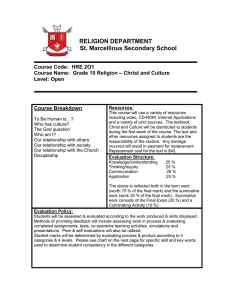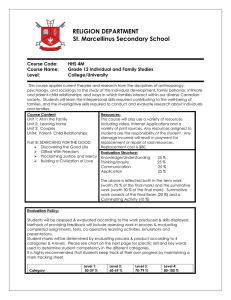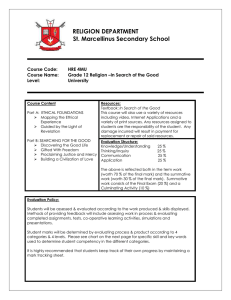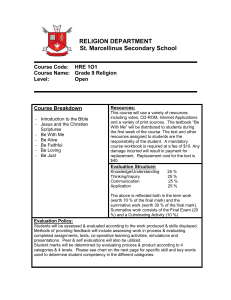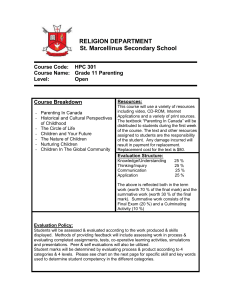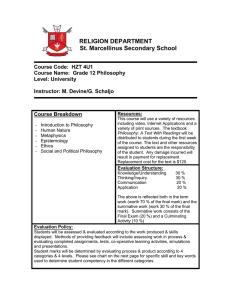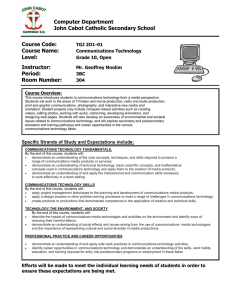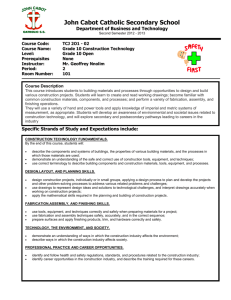Introduction to Anthropology, Psychology, and Sociology
advertisement
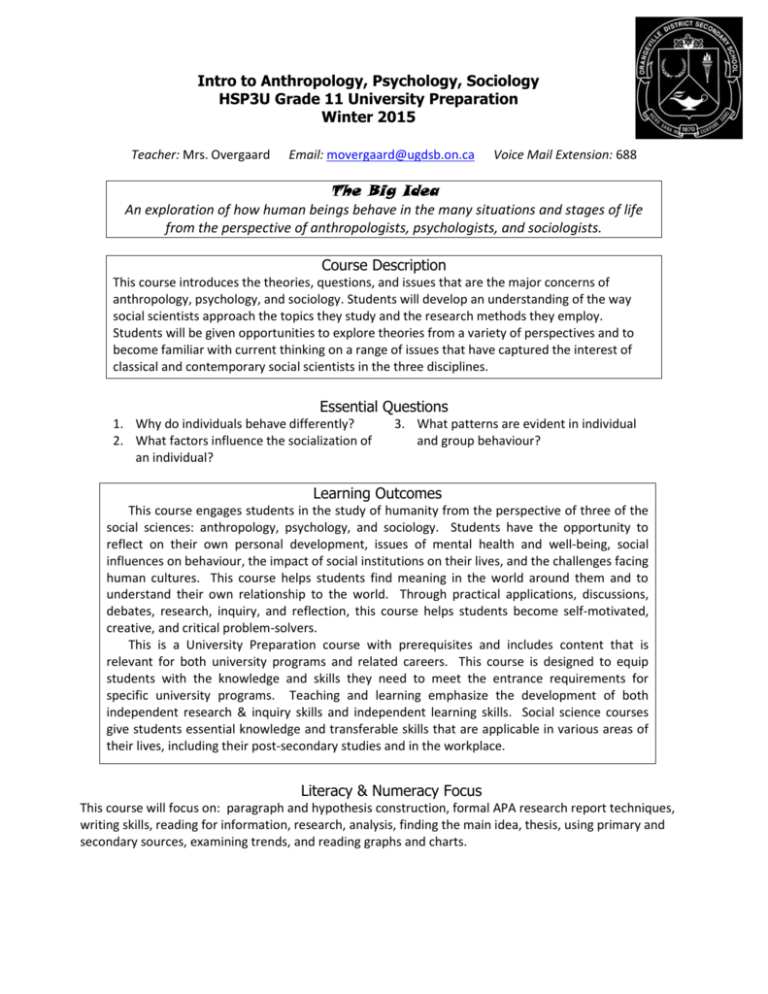
Intro to Anthropology, Psychology, Sociology HSP3U Grade 11 University Preparation Winter 2015 Teacher: Mrs. Overgaard Email: movergaard@ugdsb.on.ca Voice Mail Extension: 688 The Big Idea An exploration of how human beings behave in the many situations and stages of life from the perspective of anthropologists, psychologists, and sociologists. Course Description This course introduces the theories, questions, and issues that are the major concerns of anthropology, psychology, and sociology. Students will develop an understanding of the way social scientists approach the topics they study and the research methods they employ. Students will be given opportunities to explore theories from a variety of perspectives and to become familiar with current thinking on a range of issues that have captured the interest of classical and contemporary social scientists in the three disciplines. Essential Questions 1. Why do individuals behave differently? 2. What factors influence the socialization of an individual? 3. What patterns are evident in individual and group behaviour? Learning Outcomes This course engages students in the study of humanity from the perspective of three of the social sciences: anthropology, psychology, and sociology. Students have the opportunity to reflect on their own personal development, issues of mental health and well-being, social influences on behaviour, the impact of social institutions on their lives, and the challenges facing human cultures. This course helps students find meaning in the world around them and to understand their own relationship to the world. Through practical applications, discussions, debates, research, inquiry, and reflection, this course helps students become self-motivated, creative, and critical problem-solvers. This is a University Preparation course with prerequisites and includes content that is relevant for both university programs and related careers. This course is designed to equip students with the knowledge and skills they need to meet the entrance requirements for specific university programs. Teaching and learning emphasize the development of both independent research & inquiry skills and independent learning skills. Social science courses give students essential knowledge and transferable skills that are applicable in various areas of their lives, including their post-secondary studies and in the workplace. Literacy & Numeracy Focus This course will focus on: paragraph and hypothesis construction, formal APA research report techniques, writing skills, reading for information, research, analysis, finding the main idea, thesis, using primary and secondary sources, examining trends, and reading graphs and charts. Evaluation Students must complete all course summative assignments. Summative assignments are linked to a number of curriculum expectations. An incomplete summative assignment will result in a student not achieving the credit as the student will not be able to demonstrate those curriculum expectations. Summative Assessment 70% This section includes submission of written assignments, critical thinking research, media & the social sciences, tests, quizzes, literature analysis, inquiry project phases. Knowledge and Understanding 25% Thinking and Inquiry 25% Communication 25% Application 25% Culminating Assessment 30% This section includes a culminating project and a final exam. Social Science Inquiry Presentation 15% Final Exam 15% Attendance, Late Assignments, and Missed Evaluations Attendance and Lates The ODSS Attendance Policy will be enforced for this program. Students are expected to be in class daily and on time. If a student arrives after the bell to begin class, s/he will be considered to be late and will be marked late (regardless of the reason). If a student misses a substantial amount of class time (i.e. ½ the class) with no note and/or a reasonable explanation, that student will be considered to have had an unauthorized absence from that class. Possible consequences for being late to class or for unauthorized absences are listed below. Mrs. Overgaard will issue consequences at her discretion, including the following: detention other appropriate consequences phone call home by teacher referral to the Vice-Principal Missed Tests It is the student’s responsibility to make arrangements, ahead of time, for any tests/quizzes that are missed. If a student misses a test/quiz for an unforeseen reason such as illness, the student must bring a note signed by a parent and be prepared to write the test/quiz upon return to school at a time determined by the teacher. Friday quizzes cannot be rewritten. Late Assignments It is the expectation that all assignments be completed and submitted on time; however, it is understood that in addition to school, many students have part-time jobs, clubs, teams, and other extracurricular activities. Students may receive an extension for any one assignment in the course by completing the attached extension form and submitting it to Mrs. Overgaard at least 48 hours before the assignment is due – no questions asked. No extensions will be granted for culminating assignments! Assignments that arrive late without an extension form will be subject to 15% deducted marks after first day. Name: ___________________________ Project: __________________________ Original Due Date:_________________ Requested Due Date:________________ Signed: ___________________________
